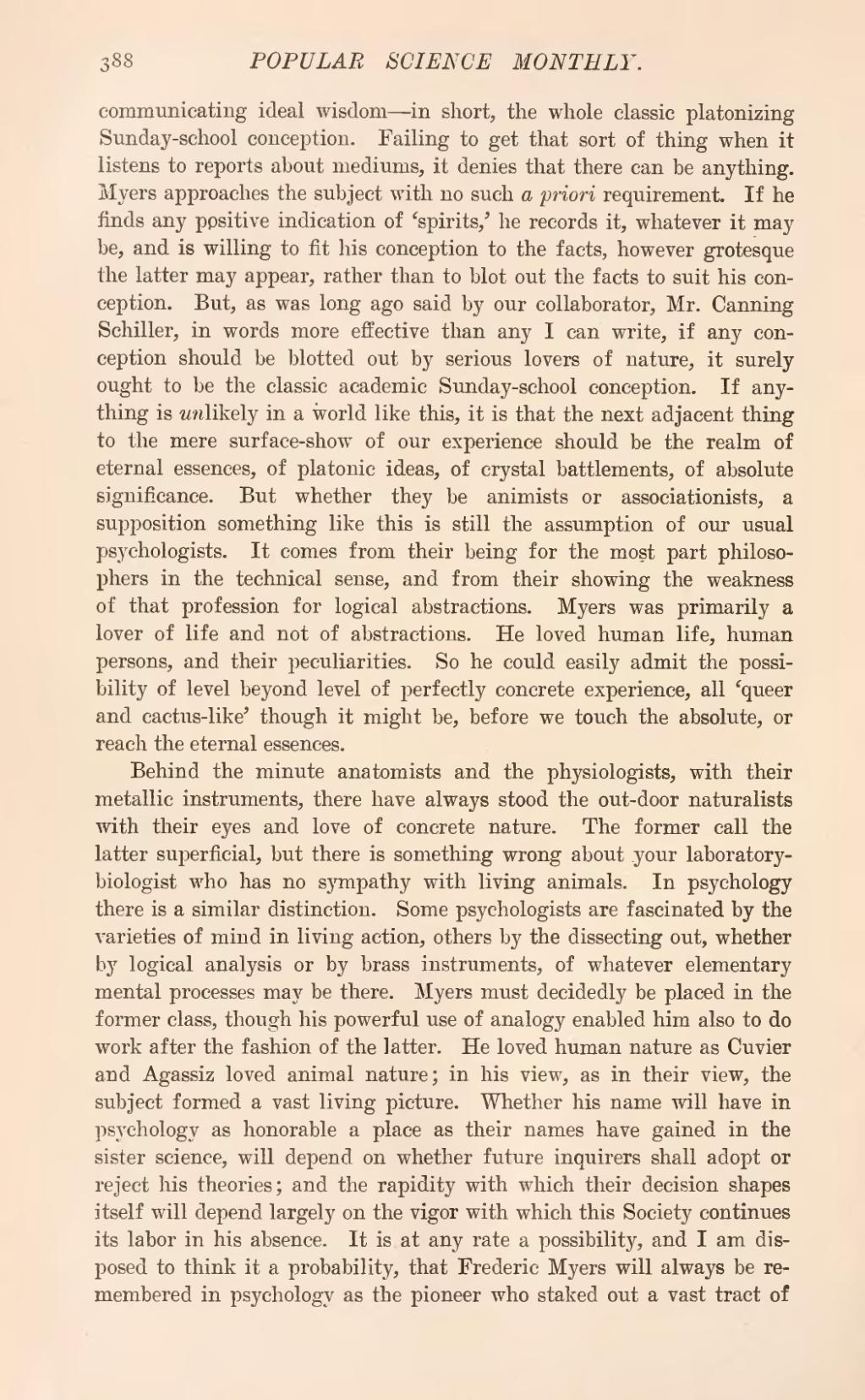communicating ideal wisdom—in short, the whole classic platonizing Sunday-school conception. Failing to get that sort of thing when it listens to reports about mediums, it denies that there can be anything. Myers approaches the subject with no such a priori requirement. If he finds any positive indication of 'spirits' he records it, whatever it may be, and is willing to fit his conception to the facts, however grotesque the latter may appear, rather than to blot out the facts to suit his conception. But, as was long ago said by our collaborator, Mr. Canning Schiller, in words more effective than any I can write, if any conception should be blotted out by serious lovers of nature, it surely ought to be the classic academic Sunday-school conception. If anything is unlikely in a world like this, it is that the next adjacent thing to the mere surface-show of our experience should be the realm of eternal essences, of platonic ideas, of crystal battlements, of absolute significance. But whether they be animists or associationists, a supposition something like this is still the assumption of our usual psychologists. It comes from their being for the most part philosophers in the technical sense, and from their showing the weakness of that profession for logical abstractions. Myers was primarily a lover of life and not of abstractions. He loved human life, human persons, and their peculiarities. So he could easily admit the possibility of level beyond level of perfectly concrete experience, all 'queer and cactus-like' though it might be, before we touch the absolute, or reach the eternal essences.
Behind the minute anatomists and the physiologists, with their metallic instruments, there have always stood the out-door naturalists with their eyes and love of concrete nature. The former call the latter superficial, but there is something wrong about your laboratory-biologist who has no sympathy with living animals. In psychology there is a similar distinction. Some psychologists are fascinated by the varieties of mind in living action, others by the dissecting out, whether by logical analysis or by brass instruments, of whatever elementary mental processes may be there. Myers must decidedly be placed in the former class, though his powerful use of analogy enabled him also to do work after the fashion of the latter. He loved human nature as Cuvier and Agassiz loved animal nature; in his view, as in their view, the subject formed a vast living picture. Whether his name will have in psychology as honorable a place as their names have gained in the sister science, will depend on whether future inquirers shall adopt or reject his theories; and the rapidity with which their decision shapes itself will depend largely on the vigor with which this Society continues its labor in his absence. It is at any rate a possibility, and I am disposed to think it a probability, that Frederic Myers will always be remembered in psychology as the pioneer who staked out a vast tract of

